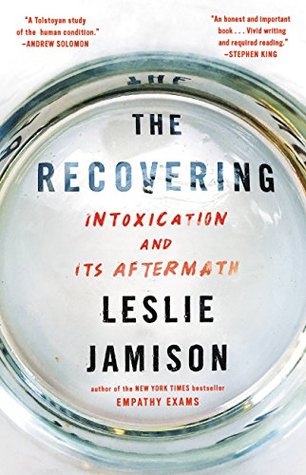More on this book
Community
Kindle Notes & Highlights
Read between
April 6 - May 19, 2024
One problem with living as if your sadness takes up the whole world is that it never does—and the people who live beyond its borders often have needs of their own.
Things got dark, and you wrote from that darkness.
any self is always plural.
The man who wants to live on nothing but water is called back to another thirst. That desire never shuts up.
Self-pity doesn’t mean the pain isn’t also real, and pain isn’t less painful for being self-inflicted.
Describing his physical condition just a year before his suicide, Berryman wrote: Diet: poor. Weight: bad. Digestion: often bad. Other functions: vomiting daily for weeks.
The idea of writing something far away from my own life appealed to me—writing about people who’d committed their lives to something much bigger than private emotion or personal happiness, the driving forces I seemed to obey so absolutely.
when someone described self-loathing as the flip side of narcissism, I almost laughed out loud at the stark truth of what she’d said. This black-and-white thinking, this all-or-nothing, it was cut from the same cloth. Being just a man among men, or a woman among women, with nothing extraordinary about your flaws or your mistakes—that was the hardest thing to accept.
A state of insufficiency is part of being human,
Because he considers many possibilities, it often takes him longer to finish what should be a short simple answer.
“How much larger your life would be if your self could become smaller in it. You would find yourself under a freer sky, in a street full of splendid strangers.”
the next right thing.
You can’t turn a pickle back into a cucumber.
I’d always feared that my karmic punishment for cheating on Peter would be that I’d get cheated on. It took me years to consider the possibility that maybe my punishment was the fear itself.
He observes a continuous ribbon of desire running through his life: not just his longing for the drug, but his longing for writing as its substitute.
it was the obsession that shamed me, the sense of being consumed by a desire that was so limited in its object.
Part of proving that you’re truly ready to recover—in drug court, in a meeting, in a memoir—involves admitting that you don’t know if you can recover at all.
“There isn’t a soul on this earth who can say for sure that their fight with dope is over until they’re dead.”
He wanted to believe in showing up for a life you’d chosen.
The routines of the bakery worked like another ritual, like the comforting structure of meetings—another shape I didn’t have to invent, a way of being useful.
Your story is probably pretty ordinary. This doesn’t mean it can’t be useful.
life happened every hour, every minute; that it wasn’t made of dramatic climaxes so much as quiet effort and continuous presence.
sobriety often felt like gripping onto monkey bars with sweaty metallic palms, just praying I didn’t fall.
Your story is only useful because others have lived it and will live it again.
men wondering how they’d go back home and face everyone they’d disappointed,
great art came from “having the discipline to talk out of the part of yourself that can love instead of the part that just wants to be loved.”
“What you really want,” Berryman wrote, “is to stay just who you are and not drink. That’s not possible, of course. Jack-Who-Drinks has got to alter into Jack-Who-Does-Not-Drink-And-Likes-It.”
alternatives to taking a long warm bath in your own pain, like waking up and getting shit done.
EFD was our catchphrase for necessary daily commitments: Every Fucking Day.
this was something that kept happening in sobriety, understanding that everyone—your boss, your bank teller, your baker, even your partner—was waking up every fucking day and dealing with shit you couldn’t even imagine.
once I started reading Infinite Jest, it seemed like much more than virtuosity for its own sake.
EVERYTHING I’VE EVER LET GO OF HAD CLAW MARKS ON IT.
“the frantic self-soothing of overeaters
When does ordinary craving become pathology? Now I think: When it becomes tyrannical enough to summon shame. When it stops constituting the self, and begins to construe it as lack. When you want to stop, and can’t; and try again, and can’t; and try again, and can’t.
Sobriety wasn’t instantaneous wish fulfillment; it was more like tearing off a bandage and reckoning directly with everything she’d been drinking to survive.
“That’s exactly your problem,” Susan told me. “You don’t know how to say anything when it’s still a mess inside you. You need to have everything figured out before you say it out loud.”
“If I don’t make it this time, I’ll just relax and drink myself to death.”
as if a relationship were ever anything besides waking up each morning and doing the best you could, not knowing where it would go next.


